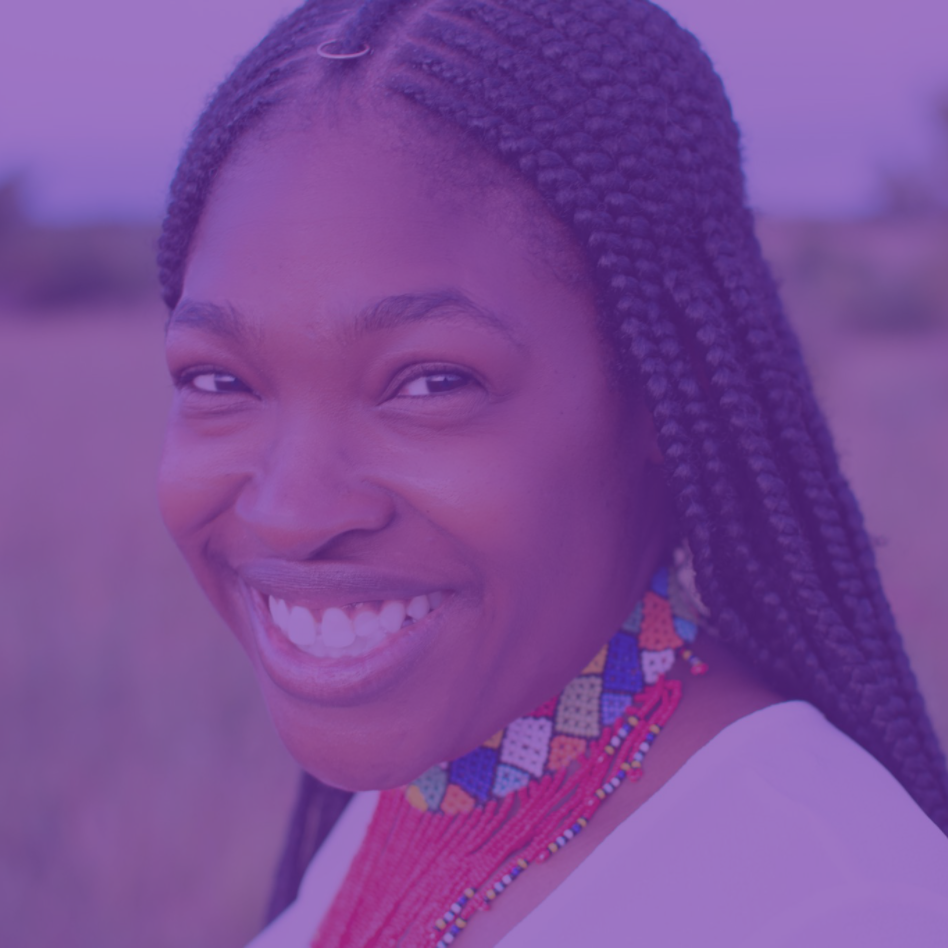If you joined us for RAISE Live, you’ll remember hearing from Dr. Jessica Elmore. Dr. Elmore is the Associate Director of Diversity Programs at the Kansas State University Alumni Association and founder of JElmore Cross Cultural Consultants LLC.
Interviewed by EverTrue’s own Jessica Frey, Dr. Elmore shared her wisdom gained from years spent working in the diversity, equity, and inclusion space with our RAISE Live audience.
Watch their conversation, or continue reading for a full breakdown.
Skip ahead:
Who is Dr. Jessica Elmore?
Dr. Elmore is a native of Sacramento, California. She is an alumna of Grambling State University, a historically Black university in Louisiana. Now in Manhattan, Kansas, Dr. Elmore uses her experiences with different types of people she’s met through her studies, work, and travels to shape her capacity for building community wherever she is.
She founded JElmore Cross Cultural Consultants to challenge organizations to create environments, opportunities, and experiences for individuals with identity-focused interests. Dr. Elmore is passionate about this work, and also plans to use it to work to build generational wealth for families, despite the widening wealth gap.
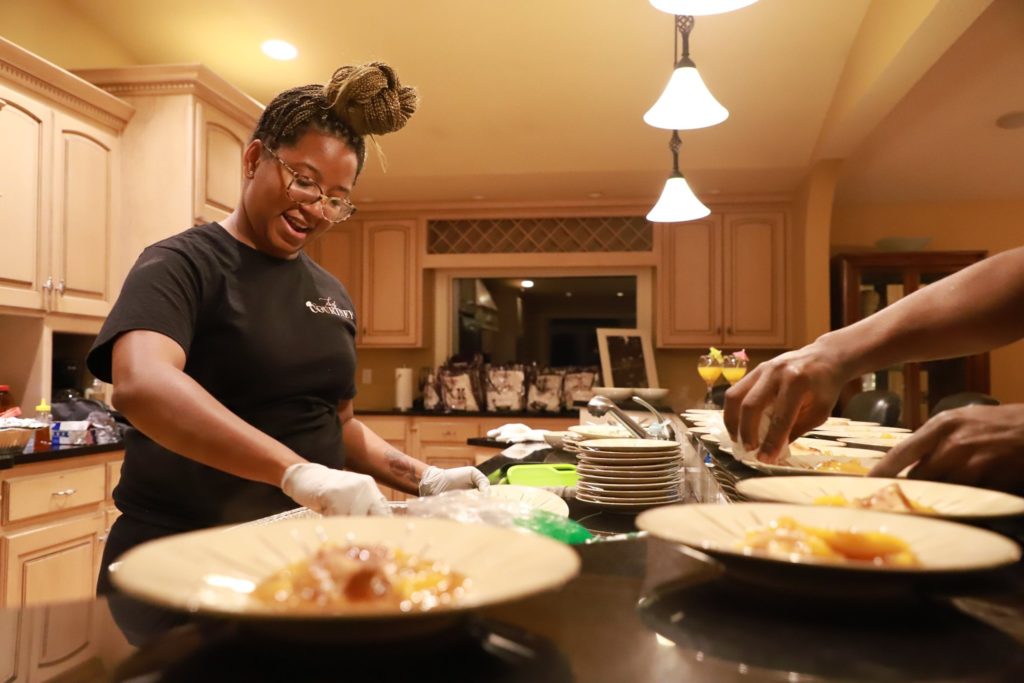
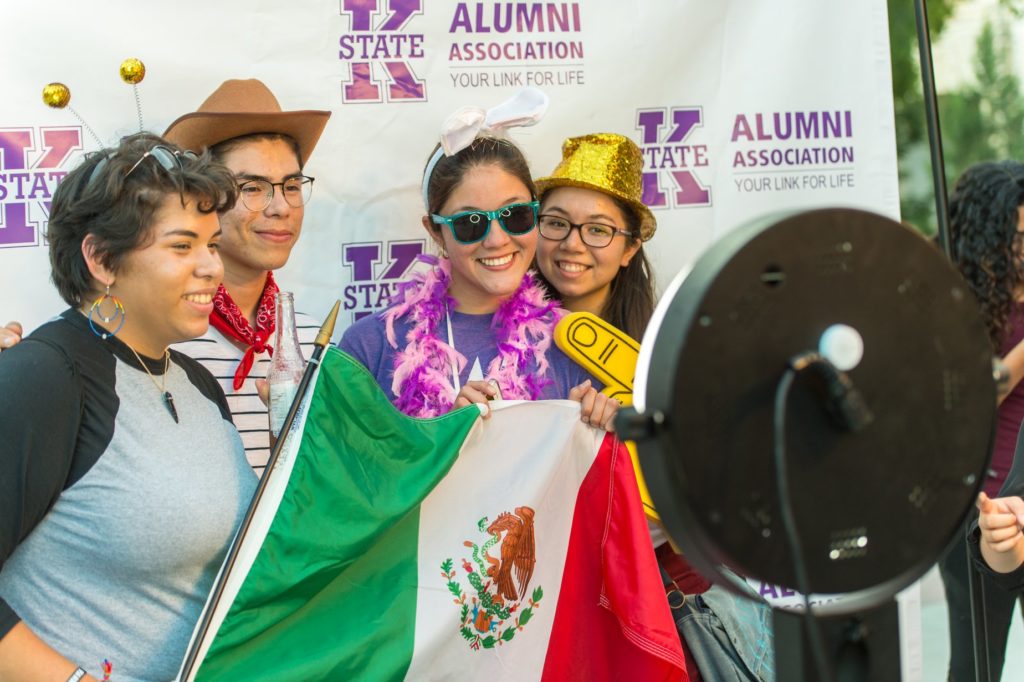
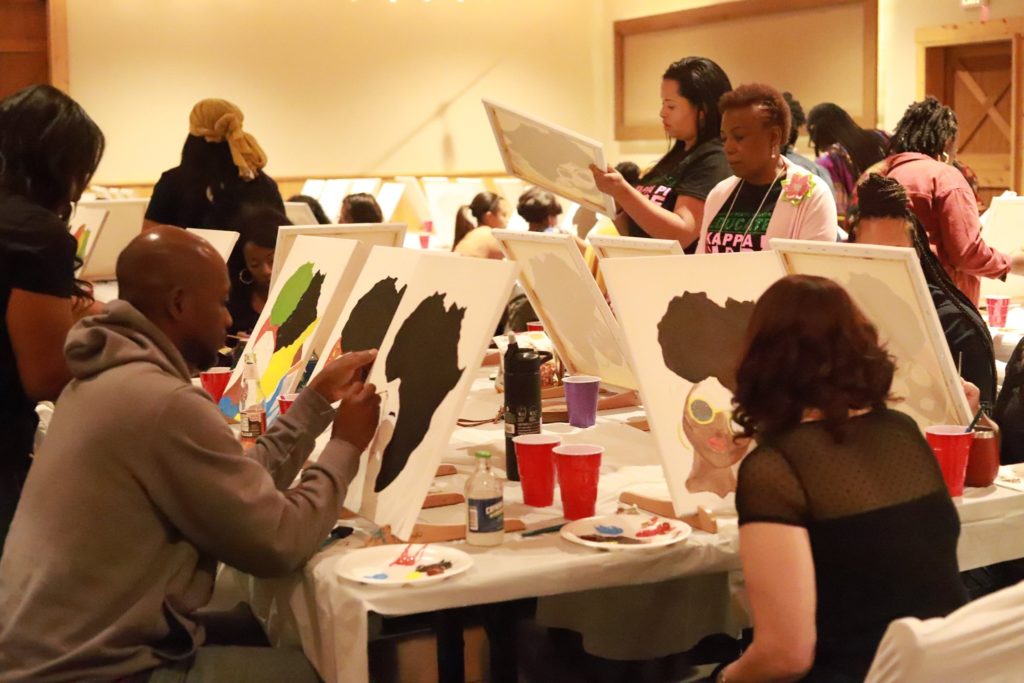
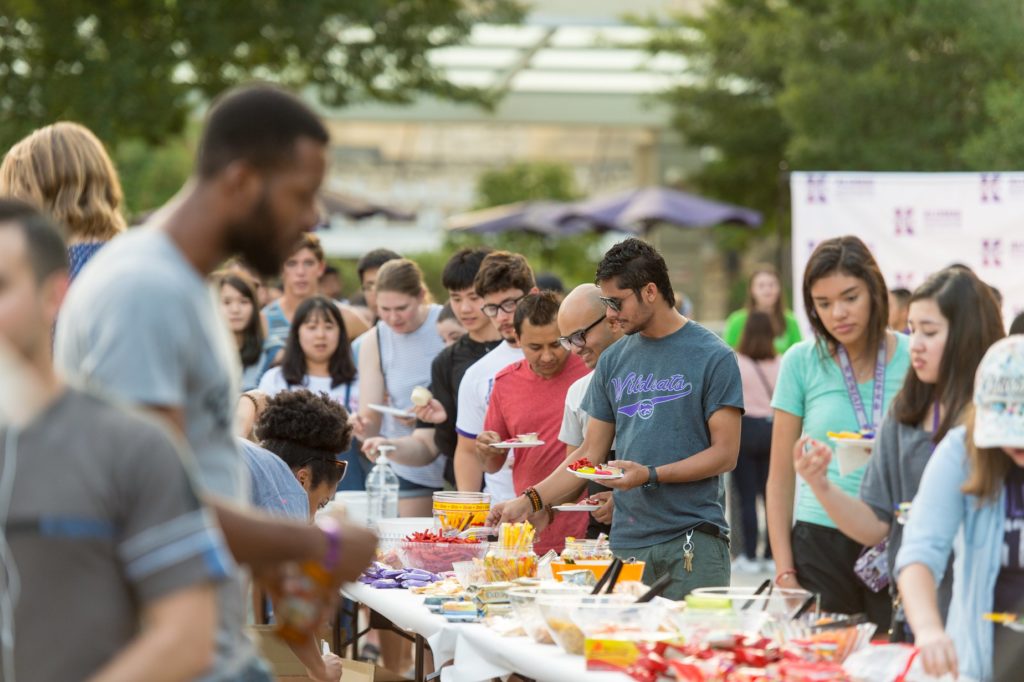
Dr. Elmore also shouts out the Hart House’s 100 Year Anniversary celebrations and Patricia Châu Nguyễn of the UCLA Alumni Association for their “authentic and needle-moving work” in the DEI space.
How does Dr. Elmore set goals and measure the success of a DEI program?
Many institutions just beginning their journey with DEI programs will struggle to know how to track goals and measure success of their programs.
These are some of Dr. Elmore’s goals:
- Increased brand recognition among diverse alumni
- Healthy and varied programming based on different alumni interests
- Increase in diverse membership to the K-State Alumni Association
- Seamless inclusion of diverse alums in overall K-State story
- Consistency and willingness of diverse alums to share stories
- Multicultural Alumni Council members’ active participation in other organizations and boards
What can I begin to do to improve my DEI efforts?
The first step to improving efforts towards any goal is to honestly assess and recognize where you are on the journey. If your organization has never spoken about DEI issues or made a public stance, it is important to authentically introduce yourself to the conversation.
Joining the conversation during or after a crisis or national reckoning on race and equality (like after the murder of George Floyd in 2020) is bound to raise some questions about the authenticity of your position.
Make your statement and remain consistent in your work, even (especially) after the fanfare has died down. Not only will your audience know you’ve been authentic, but you will build rapport and respect with your consistent work.
The next step is to determine who your off-season team is. Dr. Elmore’s analogy of an off-season team working towards DEI goals demonstrates the value of those that are working on making their workplaces, places of study, and communities more equitable and inclusive.
The off-season team continues to work on DEI initiatives, even when social issues aren’t on the main stage. They are the ones to do content audits, policy reviews, and do the slow and steady work required for real, systemic change. They are the ones that will make your organization proactive instead of reactive if (when) the next big story hits the papers.
What can every advancement shop do to improve their DEI efforts?
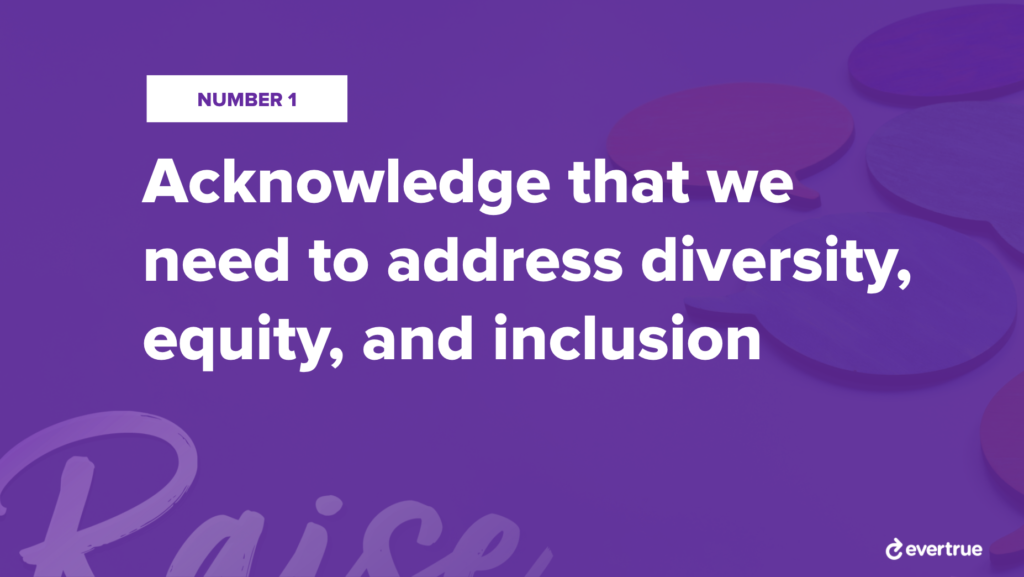
1. Acknowledge that we need to address diversity, equity, and inclusion
You can’t solve a problem without first acknowledging that it exists. Dr. Elmore cites this as the primary step every advancement shop should take as they consider working on DEI efforts.
Ask, “Have we benefited from or participated in homogenous, inequitable and exclusionary practices?”
Understanding the part we’ve all played in maintaining exclusionary practices (or, in some cases, been victims of exclusionary practices) is the first step to building a more equitable and inclusive future at our institutions.
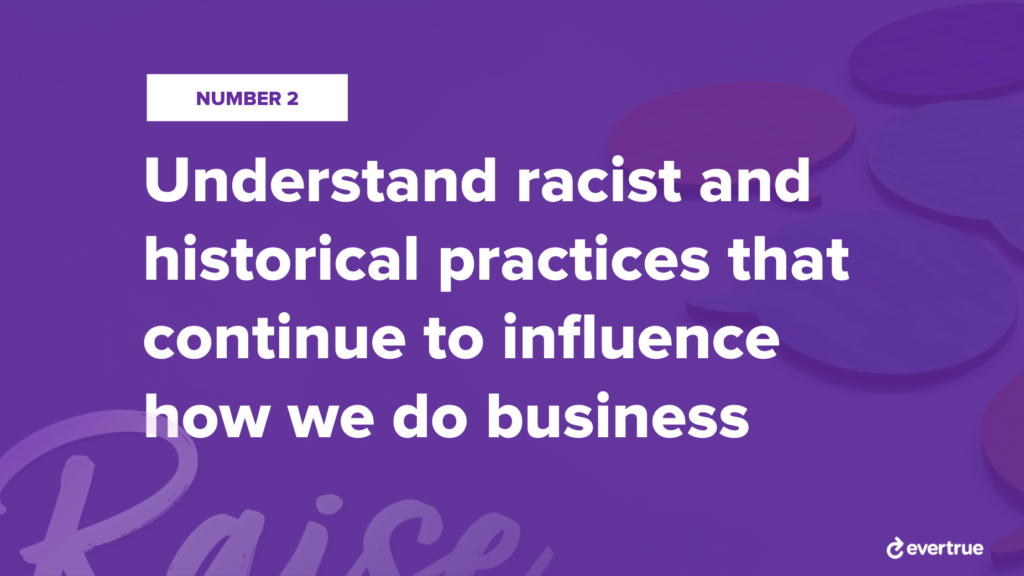
2. Understand racist and historical practices that continue to influence how we do business
It would be easy to say that it’s 2021 and there are no longer racist or prejudicial practices in place that influence how we do business. But that’s just not the case. Work to understand redlining and discriminatory insurance practices, and how they continue to influence how we do business.
Take these into consideration when looking at wealthy neighborhoods or zip codes, and incorporate overall net worth into your prospecting and qualifying activities, as well as planned giving conversations.
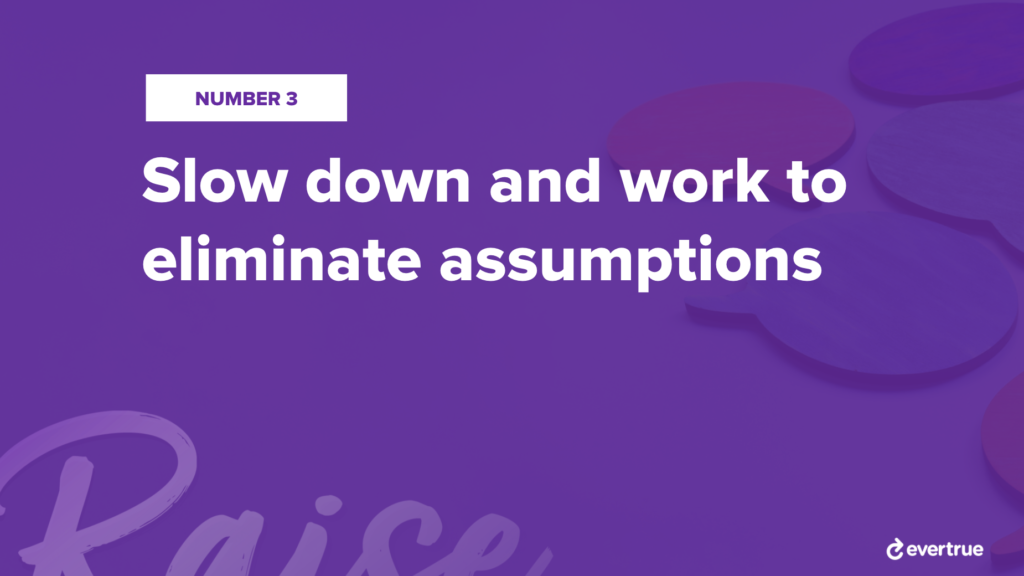
3. Slow down and work to eliminate assumptions
Dr. Elmore advises us to literally slow down and practice not reacting to your first thought. Taking time to think things through could prevent unintentional bias and potentially harmful, reactive decisions.
For additional information on this topic, Dr. Elmore suggests the book Biased by Jennifer Eberhardt.
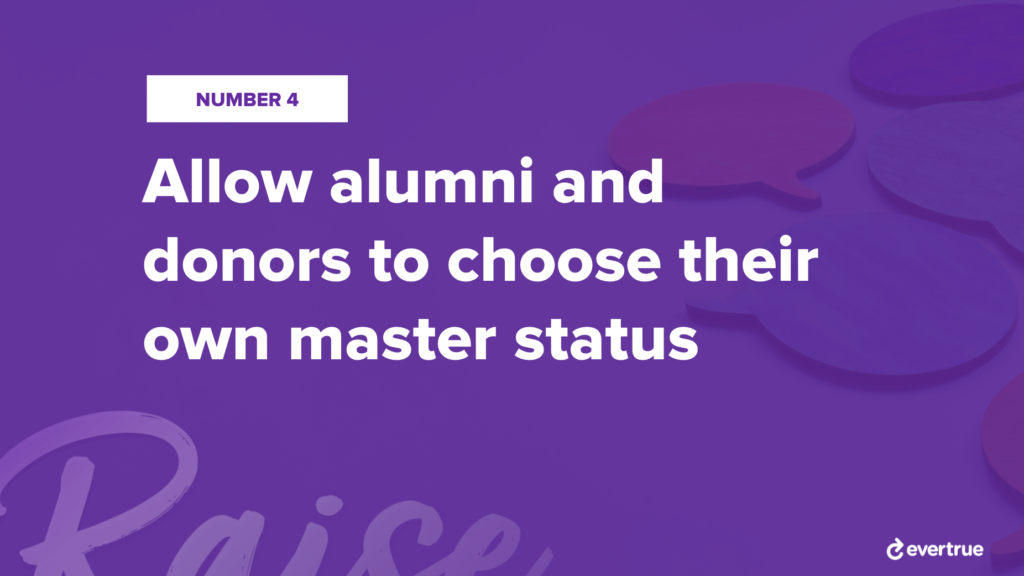
4. Allow alumni and donors to choose their own master status
We at EverTrue love to say “meet donors where they are”. While we’re usually talking about connecting with donors based on their current interests, not what their major was when they graduated 10, 20, or 30 years ago, Dr. Elmore introduces another use for this phrase.
You might expect that a woman in STEM sees her profession as her master status. However, she might identify more with being a first generation immigrant. Dr. Elmore encourages us to allow alumni to communicate their own master status with the university and build a relationship with them based on that increased knowledge.
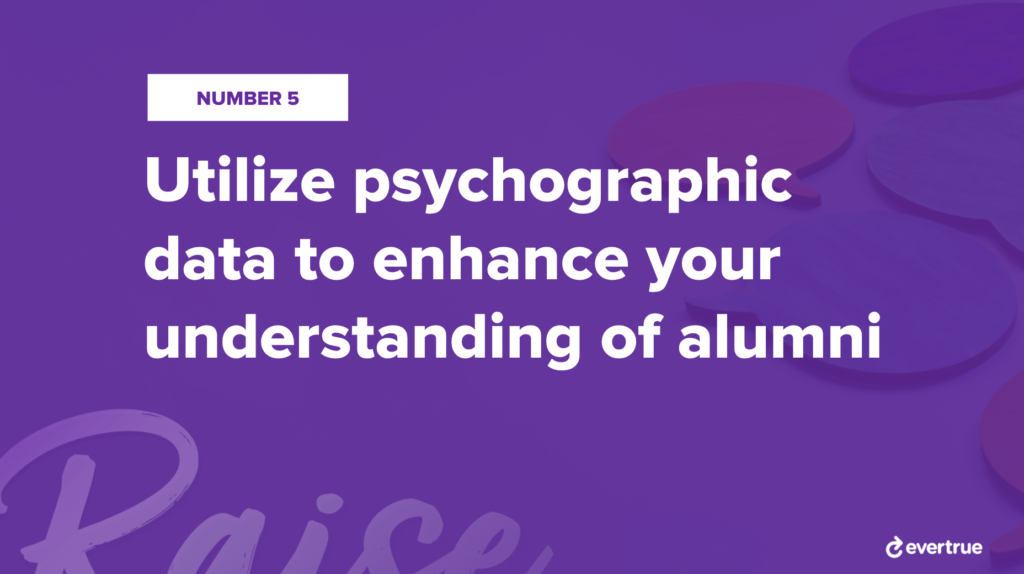
5. Utilize psychographic data to enhance your understanding of alumni
Dr. Elmore’s final tip is to take a more nuanced approach to understanding alumni interests and not making assumptions. By using comprehensive data sources, we can get to know our alumni better as individuals rather than large groups we’ve lumped together by assumed affiliations or preferences.
We should let alumni tell us what they are passionate about and how they want to participate philanthropically with our organization.
Want to get in touch with Dr. Elmore? Connect with her on LinkedIn or visit her website.
